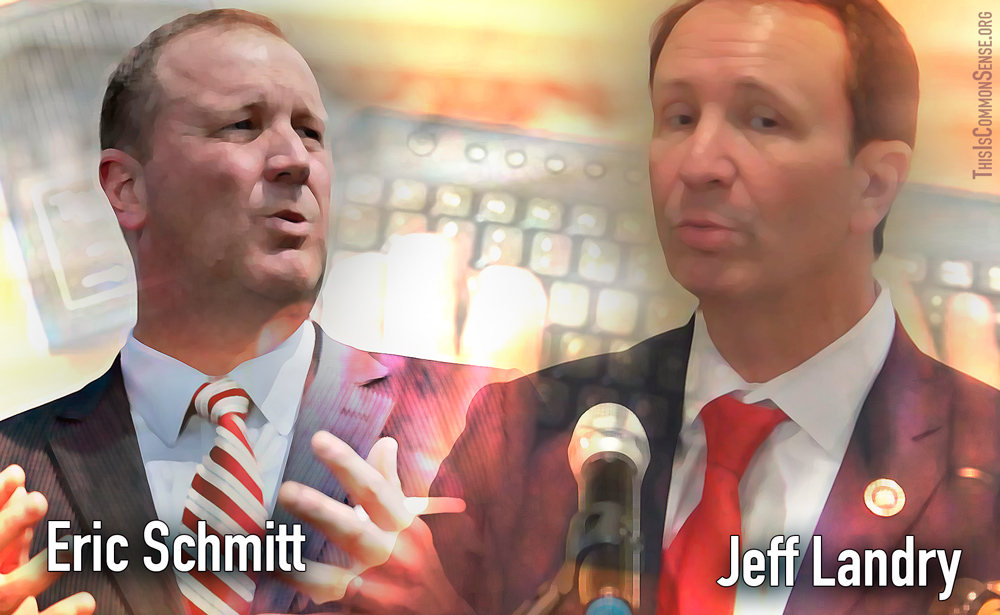Two state attorneys general, Eric Schmitt and Jeff Landry (of Missouri and Louisiana, respectively), are suing the federal government for colluding with Big Tech to suppress speech in violation of First Amendment rights.
Their recent filing quotes a ruling which argues that it“violates the First Amendment ‘if the government coerces or induces [a private entity] to take action the government itself would not be permitted to do, such as censor expression of a lawful viewpoint.’”
The plaintiffs observe that this has been happening for years, “culminating in . . . open and explicit censorship programs,” and they ask the court to permanently enjoin such unlawful conduct.
Separately, twenty attorneys general (including Schmitt and Landry) have sent a letter to Homeland Security Secretary Alejandro Mayorkas about the agency’s new board instituted to counter unapproved speech.
The AGs threaten to “consider judicial action” if Mayorkas doesn’t “disband this Orwellian Disinformation Governance Board immediately.”
According to the letter, the board “will inevitably have a chilling effect on free speech.”
It is, I suppose, conceivable that if a suit were filed the Biden administration would recognize that it can’t win and would dissolve the board immediately. So far, though, the administration has just been barreling ahead with bad policies unless and until legally thwarted.
So why are the AGs even bothering with a letter that must have even less effect than a filing?
Now the letter has been submitted. Fine. Give Mayorkas ten minutes to shut down the board. Has he shut it down? No.
Sue!
This is Common Sense. I’m Paul Jacob.
—
See all recent commentary
(simplified and organized)


